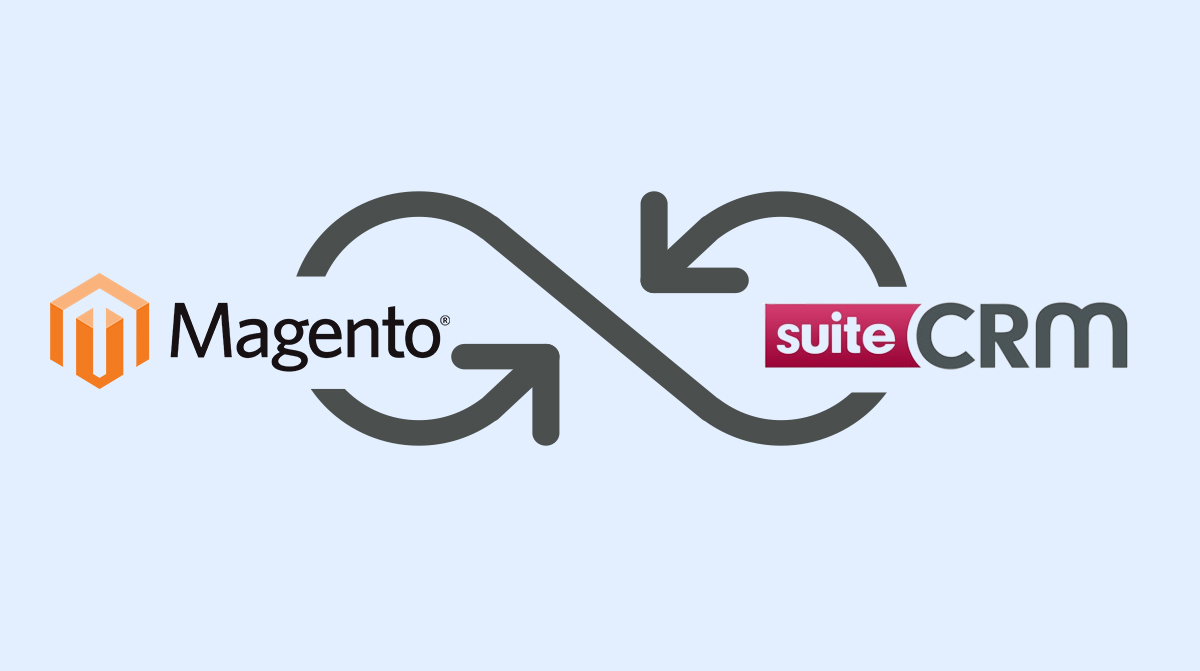In 2025, real estate businesses will increasingly use advanced ERP (Enterprise Resource Planning) and CRM (Customer Relationship Management) systems to streamline operations, manage customer relationships, and boost profitability. These platforms integrate various business functions, from lead generation and sales to project management and financial tracking, providing real estate professionals with powerful tools to drive success.
These systems help businesses improve efficiency and offer personalized customer experiences by leveraging automation, AI-driven analytics, and customizable features. This guide highlights the best real estate ERP and CRM platforms that will help businesses stay competitive and grow in 2025.
Factors to Consider While Choosing Real Estate ERP and CRM Tools
- Customization and Flexibility: Ensure the platform can be tailored to your business needs, such as property management, sales workflows, and customer interactions.
- Automation and AI Integration: Choose systems with AI-powered tools for predictive analytics, lead scoring, and personalized recommendations.
- User-Friendly Interface: A simple, intuitive design will save time and reduce training efforts for your team.
- Integration Capabilities: Look for platforms that can easily integrate with your existing software and third-party applications.
- Scalability: Ensure the platform can grow with your business, handling increasing data and transaction volumes.
Top Real Estate ERP and CRM Platforms in 2025
Platform 1: Sell.Do
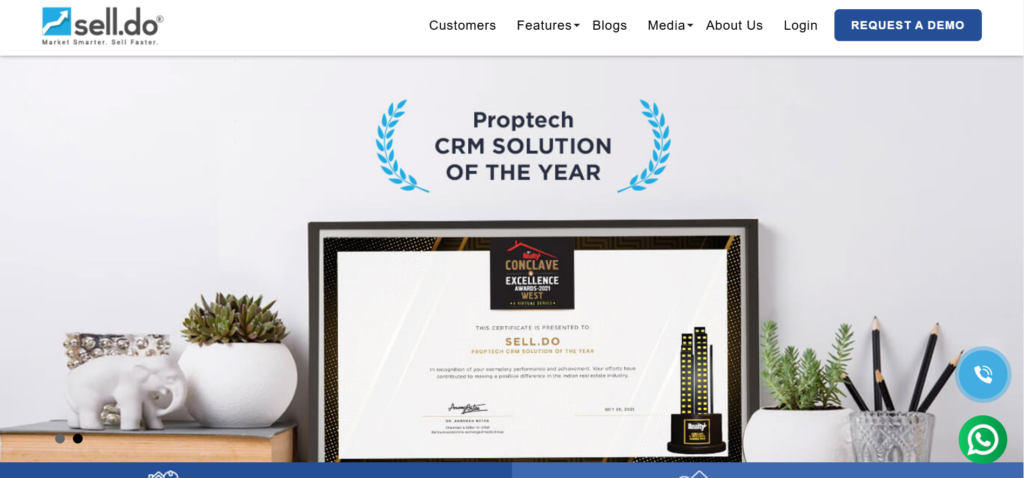
Sell.Do is a cloud-based CRM and marketing automation platform designed for real estate businesses. It streamlines lead management, sales, and marketing and offers automated follow-ups and real-time performance analytics to help businesses convert more leads.
- Features: Lead capture, automated follow-up, real-time reporting.
- Scalability: Suitable for both small teams and large enterprises.
- Industries Served: Real estate developers, brokers, and property managers.
- USPs: End-to-end lead management and data-driven insights.
Platform 2: Dataman
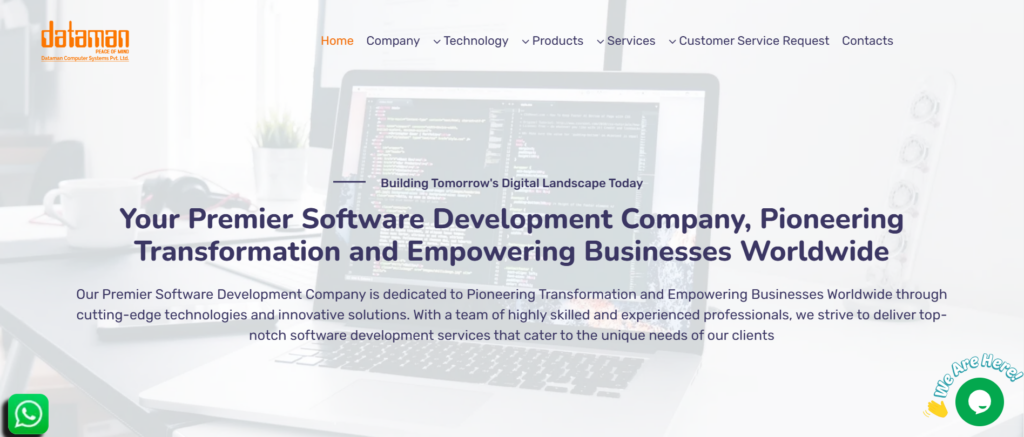
Dataman offers a comprehensive real estate ERP system with robust sales, inventory, and property management features. It integrates with accounting systems and provides real-time dashboards for actionable insights.
- Features: Inventory management, lead tracking, customer lifecycle management.
- Scalability: Scalable for growing businesses.
- Industries Served: Real estate developers, construction companies, property managers.
- USPs: Comprehensive ERP capabilities tailored for real estate.
Platform 3: StrategicERP
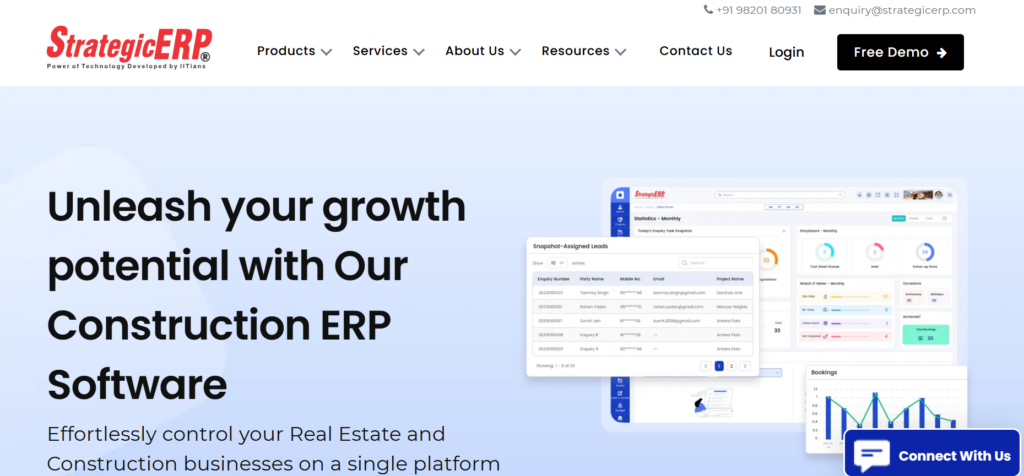
StrategicERP offers a powerful combination of CRM and ERP functionalities to optimize real estate sales, project management, and accounting. Its customizable dashboards and reporting tools provide a unified system for better decision-making.
- Features: Sales pipeline management, project budgeting, and reporting tools.
- Scalability: Best for medium to large-scale businesses.
- Industries Served: Real estate developers, property managers, and construction companies.
- USPs: Unified sales and project management solution.
Platform 4: Xpedeon
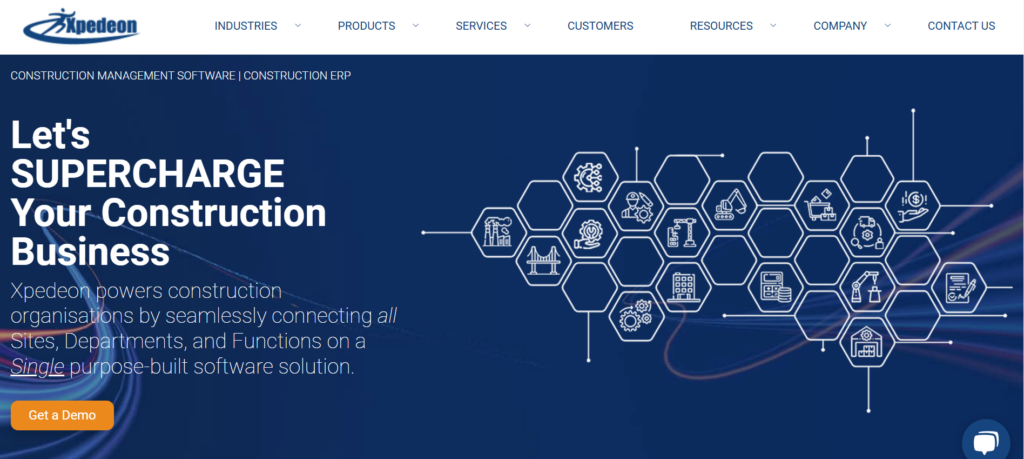
Xpedeon is an all-in-one ERP solution for real estate developers. It offers project lifecycle management, financial tracking, and CRM tools in a single platform. This simplifies complex project management tasks and enhances overall operational efficiency.
- Features: Project lifecycle management, financial tools, lead tracking.
- Scalability: Ideal for medium to large developers and construction firms.
- Industries Served: Real estate development, construction, property management.
- USPs: End-to-end project and financial management.
Platform 5: Brokermint
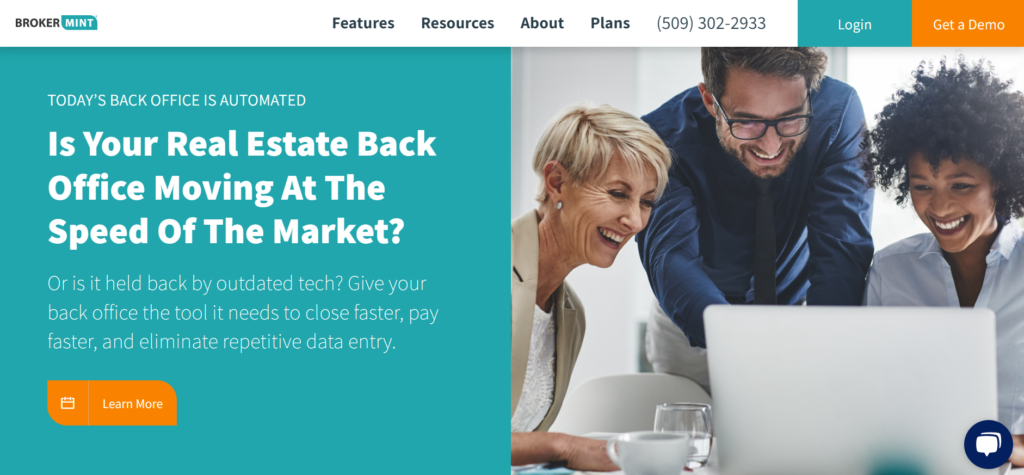
Brokermint is a cloud-based CRM and transaction management system for real estate agencies. It helps streamline operations from lead capture to deal closure. It also automates document handling and commission management to reduce administrative tasks.
- Features: Commission management, lead tracking, document automation.
- Scalability: Ideal for real estate agencies and brokerages.
- Industries Served: Real estate agencies, brokers, property managers.
- USPs: End-to-end brokerage management with automation.
Platform 6: Astral Technologies
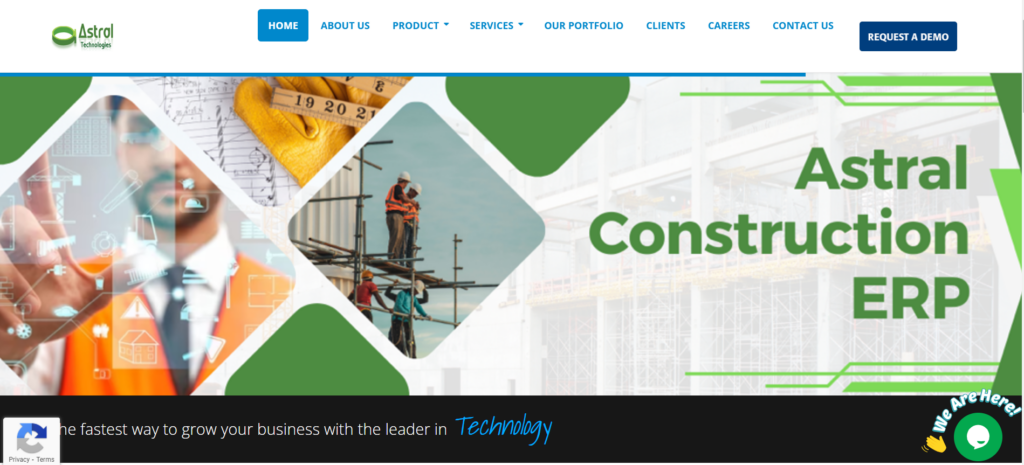
Astral Technologies provides ERP solutions for real estate businesses, including automation and data analytics. Their CRM capabilities support effective lead management and customer engagement, ensuring companies can grow efficiently.
- Features: Sales and lead management automation, integrated accounting, and data analytics.
- Scalability: Suitable for growing real estate businesses.
- Industries Served: Real estate developers, brokers, property agents.
- USPs: Automation and data-driven insights to enhance sales and efficiency.
Platform 7: In4Velocity
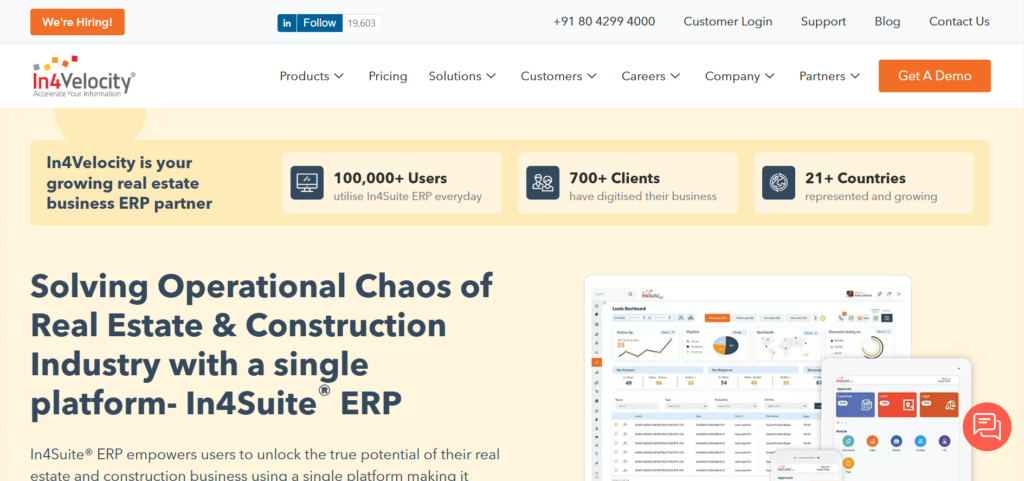
In4Velocity is designed specifically for the real estate sector. It offers features for project tracking, financial management, and sales, helping developers, builders, and contractors streamline operations.
- Features: Project and inventory management, sales, and CRM tools.
- Scalability: Ideal for both large and mid-sized firms.
- Industries Served: Construction, real estate developers, and property managers.
- USPs: Tailored features for project management and sales in real estate.
Platform 8: Citta Solutions
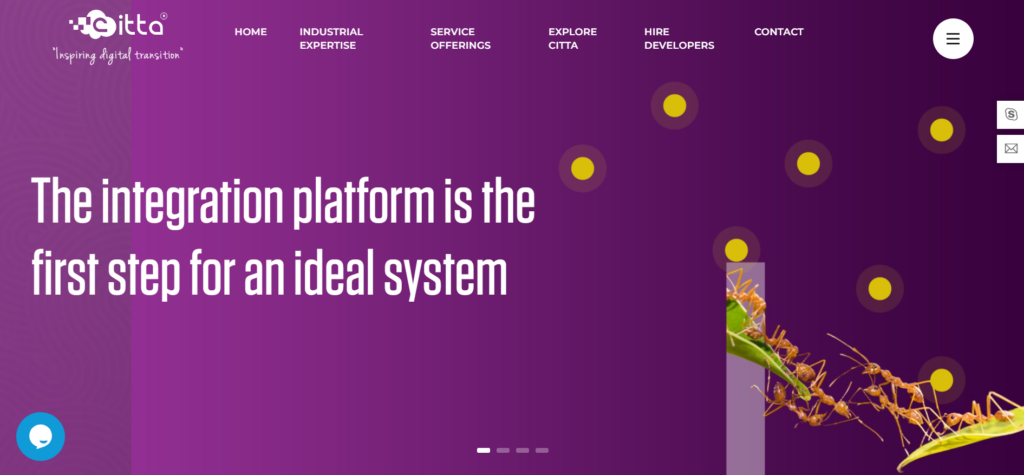
Citta Solutions integrates project management, CRM, and accounting into a single platform, helping real estate businesses streamline operations and enhance customer relationships.
- Features: Project management, client and lead management, financial tools.
- Scalability: Suitable for small and large enterprises.
- Industries Served: Real estate developers, contractors, and property managers.
- USPs: Integrated project, financial, and client management.
Platform 9: Farvision ERP
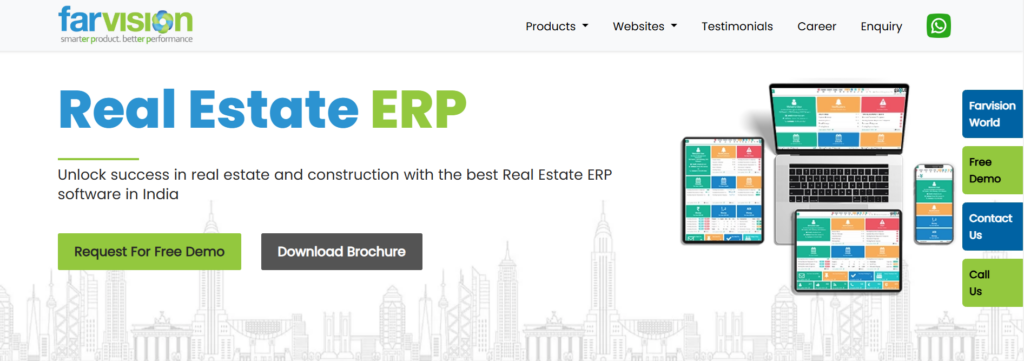
Farvision ERP is a comprehensive platform for managing real estate sales, property management, and customer relationships. It offers integrated financial management and business insights for large-scale firms.
- Features: Sales and property management, financial modules, real-time analytics.
- Scalability: Highly scalable for large real estate firms.
- Industries Served: Real estate developers and property managers.
- USPs: Comprehensive property management with integrated financial tools.
Platform 10: TactiveSoft
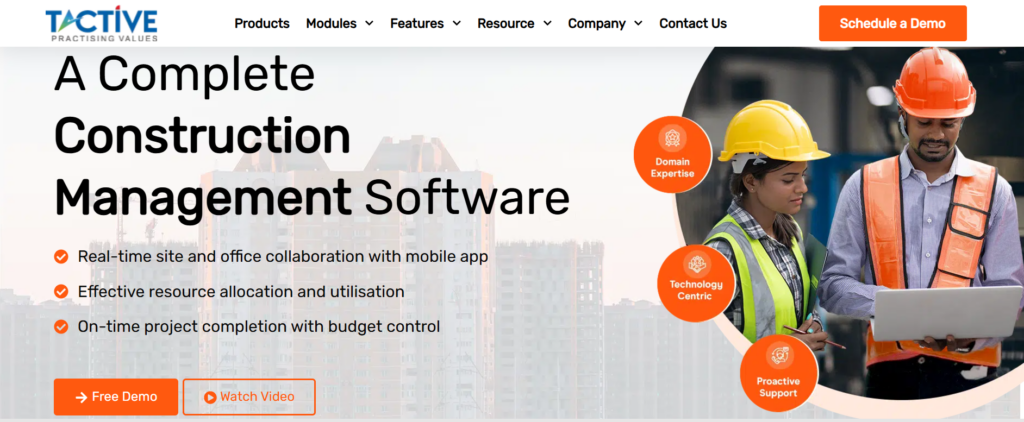
TactiveSoft offers an all-in-one solution for real estate businesses. It combines ERP and CRM functionalities to efficiently manage customer relationships, sales, and workflow automation.
- Features: Sales pipeline, CRM management, reporting and analytics.
- Scalability: Scalability for small to large teams.
- Industries Served: Real estate brokers, developers, and property managers.
- USPs: End-to-end management of real estate operations.
Platform 11: Close CRM
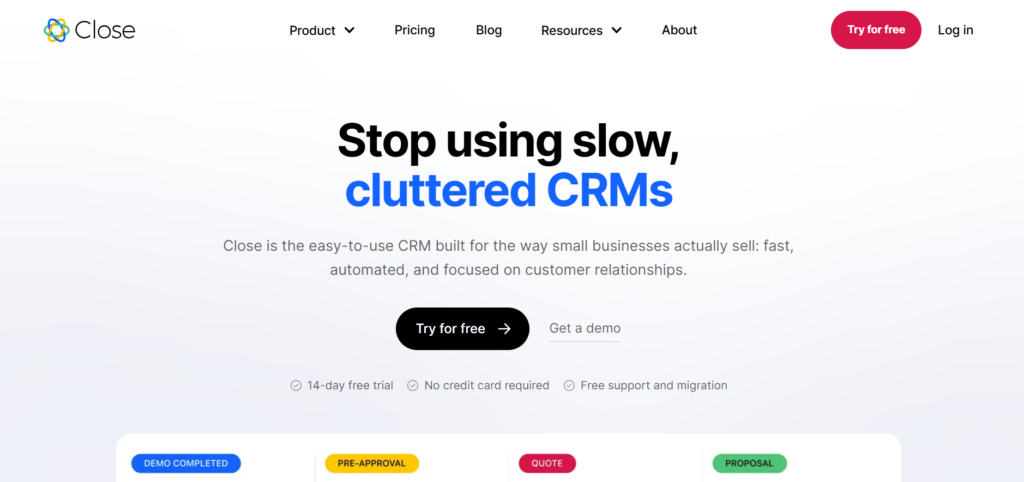
Close CRM is a powerful CRM platform focused on real estate professionals. It offers integrated communication tools like calling and SMS, which help improve sales productivity and automate follow-ups.
- Features: Built-in calling and SMS, lead tracking, and sales automation.
- Scalability: Ideal for real estate agents and small teams.
- Industries Served: Real estate agents, brokers, property managers.
- USPs: Communication tools and automation for increased productivity.
Conclusion
In 2025, selecting a suitable ERP and CRM platform for your real estate business is essential for staying competitive and streamlining operations. These systems help manage customer relationships and enhance project management, accounting, and sales processes. Whether you’re a small agency or a large-scale real estate firm, the platforms highlighted above offer customizable, scalable solutions to meet the industry’s unique demands. By leveraging advanced features like AI, automation, and integrated data analytics, these platforms enable businesses to work smarter, improve efficiency, and deliver exceptional customer experiences.
Investing in a robust ERP and CRM system tailored to the real estate sector will empower your business to grow sustainably, adapt to market changes, and succeed in a fast-evolving industry.
Frequently Asked Questions (FAQs)
ERP (Enterprise Resource Planning) manages internal business processes such as project management, accounting, and inventory. In contrast, CRM (Customer Relationship Management) primarily manages customer interactions, leads, and sales activities.
AI enhances CRM and ERP systems by offering predictive analytics, personalized recommendations, and automated lead scoring, which help businesses improve lead conversion rates and operational efficiency.
Yes, many of these platforms offer scalable solutions that can accommodate businesses of all sizes. Features can be customized to fit the needs of small agencies and large enterprises.
An integrated system provides a unified view of customer interactions, project progress, and financial data, improving decision-making and operational efficiency across all business areas.
Consider factors like business size, industry needs, ease of use, scalability, and integration with existing tools. Opt for platforms that offer customization and automation features to improve customer engagement and streamline operations.
Related Articles
-
Magento Bridge – The Unbreakable Bond Between Magento & SuiteCRM Users
The growing needs of eCommerce businesses and the dynamic shifts in consumer expectations have contributed towards the rise of Enterprise Application Integration. These integrations are the foundation of a true
-
How Social CRM Boosts Sales and Lead Conversion In 2023?
The world of sales is evolving at a tremendous pace! This fast-paced industry is changing how companies manage their customers, bridging one of the most crucial bridges from the past:
-
Odoo POS System: 6 Reasons to Make the Switch
When it comes to running a retail store, having a point-of-sale system is a must. A POS system may considerably ease regular company operations and can even be revenue-generating in

